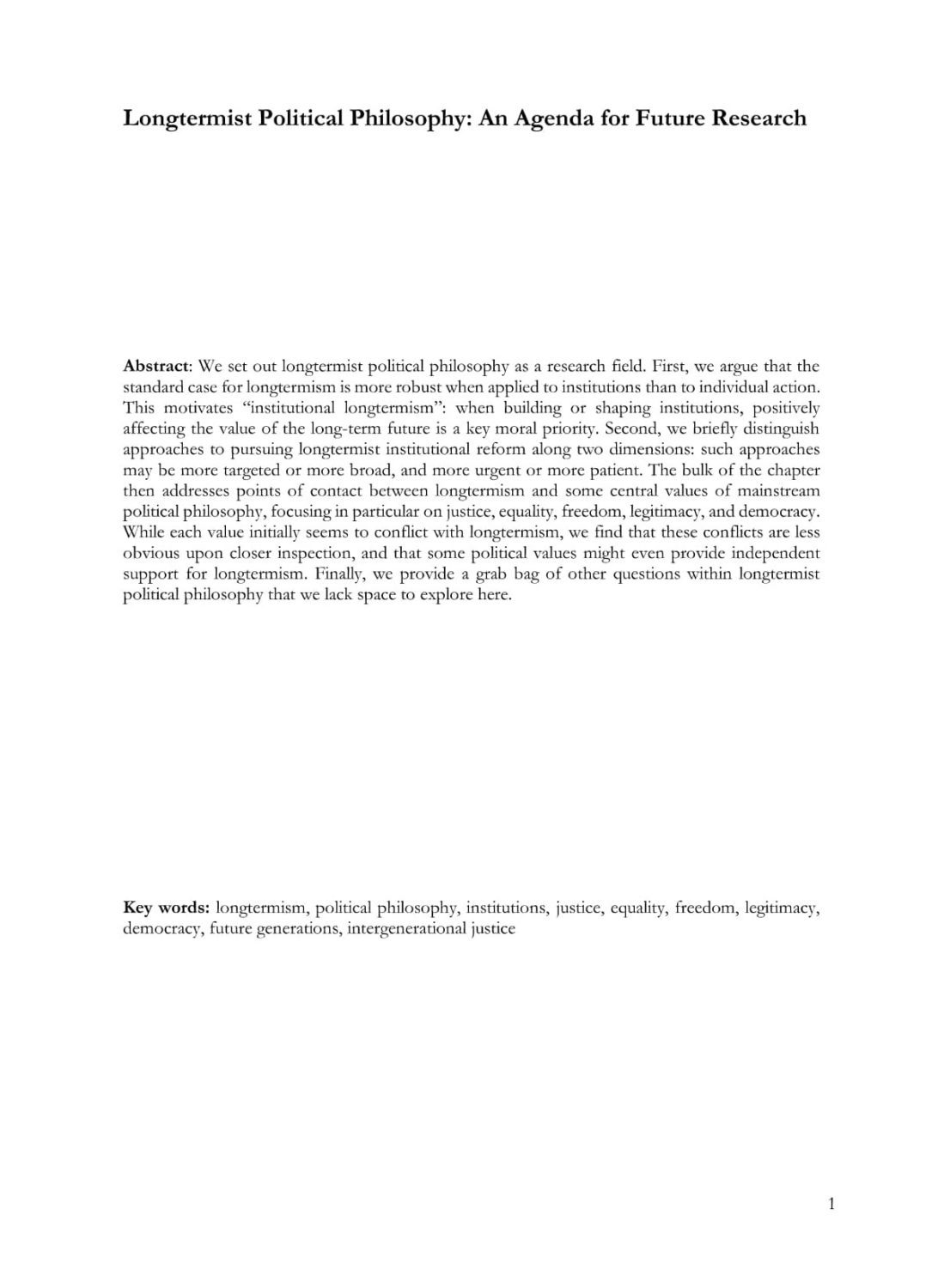Longtermist political philosophy: an agenda for future research
Jacob Barrett (Global Priorities Institute, University of Oxford) and Andreas T. Schmidt (University of Groningen)
GPI Working Paper No. 15 - 2022, forthcoming in Essays on Longtermism
We set out longtermist political philosophy as a research field. First, we argue that the standard case for longtermism is more robust when applied to institutions than to individual action. This motivates “institutional longtermism”: when building or shaping institutions, positively affecting the value of the long-term future is a key moral priority. Second, we briefly distinguish approaches to pursuing longtermist institutional reform along two dimensions: such approaches may be more targeted or more broad, and more urgent or more patient. The bulk of the chapter then addresses points of contact between longtermism and some central values of mainstream political philosophy, focusing in particular on justice, equality, freedom, legitimacy, and democracy. While each value initially seems to conflict with longtermism, we find that these conflicts are less obvious upon closer inspection, and that some political values might even provide independent support for longtermism. Finally, we provide a grab bag of other questions within longtermist political philosophy that we lack space to explore here.
Other working papers
Longtermism, aggregation, and catastrophic risk – Emma J. Curran (University of Cambridge)
Advocates of longtermism point out that interventions which focus on improving the prospects of people in the very far future will, in expectation, bring about a significant amount of good. Indeed, in expectation, such long-term interventions bring about far more good than their short-term counterparts. As such, longtermists claim we have compelling moral reason to prefer long-term interventions. …
Future Suffering and the Non-Identity Problem – Theron Pummer (University of St Andrews)
I present and explore a new version of the Person-Affecting View, according to which reasons to do an act depend wholly on what would be said for or against this act from the points of view of particular individuals. According to my view, (i) there is a morally requiring reason not to bring about lives insofar as they contain suffering (negative welfare), (ii) there is no morally requiring reason to bring about lives insofar as they contain happiness (positive welfare), but (iii) there is a permitting reason to bring about lives insofar as they…
Time Bias and Altruism – Leora Urim Sung (University College London)
We are typically near-future biased, being more concerned with our near future than our distant future. This near-future bias can be directed at others too, being more concerned with their near future than their distant future. In this paper, I argue that, because we discount the future in this way, beyond a certain point in time, we morally ought to be more concerned with the present well- being of others than with the well-being of our distant future selves. It follows that we morally ought to sacrifice…

